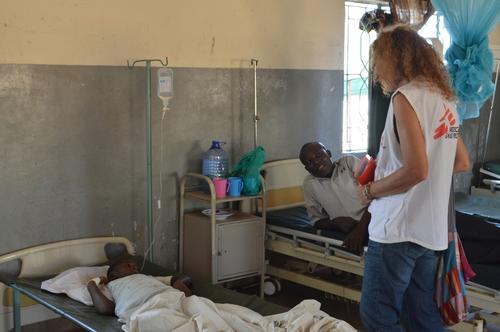Nairobi – Médecins Sans Frontières (MSF) together with Kenyan health authorities and other partners have been battling the cholera epidemic in Kenya since January. In the past five months, the outbreak has spread to 10 of the country's 47 counties and has claimed 72 lives, according to official figures.
Although cholera is a treatable disease, MSF is concerned that the outbreak could worsen and last much longer due to the high population mobility and the congested living situation in most affected parts in the capital, Nairobi.
Because cholera is such a highly contagious disease, as people move to and from the affected counties they are transferring the infection from one locality to the next.
“MSF is actually particularly worried about the scale and the spread of the epidemic in Nairobi due to the high population density, particularly as it is now diffused in almost all sub counties and informal settlements of the city,” says William Hennequin, MSF head of mission in Kenya.
“In Nairobi, although the number of cases fluctuates every other day, MSF teams at the cholera treatment centres inside the Ministry of Health facilities are seeing an average of 200 patients a week,” he adds.
Since the beginning of the current outbreak in January 2015, MSF has worked with county governments in dealing with this epidemic. MSF has set up 4 cholera units in Nairobi and has been supporting 47 facilities in 8 counties (Migori, Homa Bay, Bomet, Nakuru, Nairobi, Muranga, Kiambu and Embu), that have provided care and treatment to more than 4,200 patients. To ensure infection control and quality of care, MSF has provided 301 medical and non-medical staff members. In addition MSF has donated supplies including rehydration solution, gloves, soaps and water tanks in situations when government or partners had limited capacity to do so.
MSF remains ready to intervene in new locations of the country if needed.



